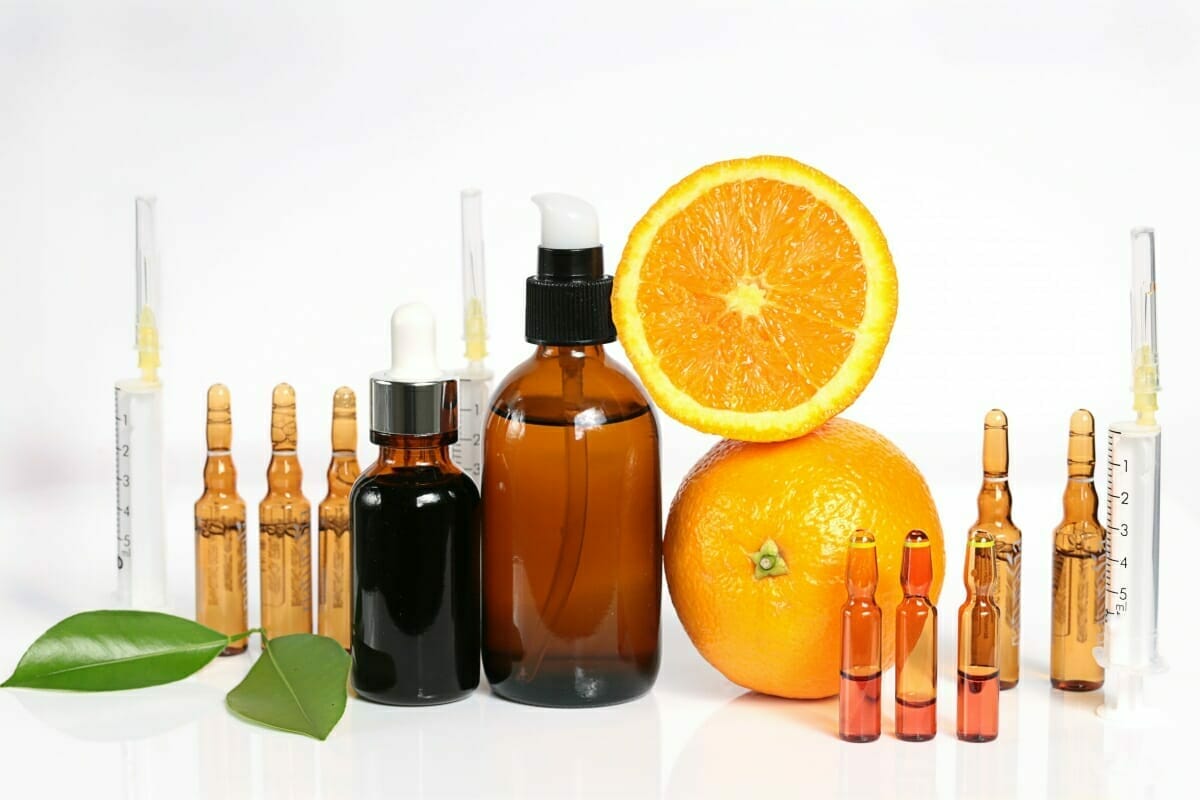It’s widely known that vitamin C is healthy. It’s a water-soluble substance whose chemical name is ascorbic acid and which the human body cannot synthesize on its own. It must therefore be supplied through diet. The recommended daily amount of vitamin C for a healthy adult is given as 100mg.
In recent years, the importance of vitamin C in skincare has also been increasingly researched.
But what does vitamin C do in our skin?
- Vitamin C is an important antioxidant that helps neutralize free radicals in the skin.
- It plays a crucial role in building collagen, the skin's framework.
- It has anti-inflammatory effects and is therefore very helpful in treating minor impurities.
- Vitamin C can counteract the increased formation of pigment spots.
The Effect of Vitamin C as an Antioxidant
Free radicals often form during various metabolic processes in the body and therefore also in the skin. These are unstable, reactive molecules that, in search of reaction partners, like to destroy cell membranes, lipids, and proteins necessary for healthy and radiant skin. External environmental factors such as UV radiation, cigarette smoke, or air pollution also contribute to increased formation of free radicals.
To protect itself from these potentially harmful molecules, the skin needs so-called antioxidants. They neutralize the free radicals by reacting with them, thus counteracting premature skin aging.
In addition to ascorbic acid, vitamin A and vitamin E or the coenzyme Q10 are also important antioxidants.
Vitamin C Against Wrinkles
Vitamin C is an important co-enzyme in the formation of the molecule collagen. Collagen is the protein of connective tissue and thus responsible for firm and youthful skin full of elasticity. As we age, the skin produces less collagen, becoming looser and developing wrinkles. Here, ascorbic acid applied directly to the skin, for example as a highly concentrated serum, can help in two ways: On one hand, the skin produces more of its own collagen and thus regains its youthful firmness; on the other hand, the antioxidant effect of vitamin C prevents the destruction of existing collagen.
Vitamin C for Skin Problems
Another advantage of vitamin C’s antioxidant effect is that it helps to alleviate the micro-inflammations of the skin that cause impurities and acne. The result is clearer skin. However, this therapy is not sufficient for severe acne and must be supplemented with stronger substances.
Additionally, it counteracts excessive melanin formation and thus inhibits the development of pigment and age spots.
Thanks to its natural peeling effect, it also helps to free the skin from dead skin flakes, thus providing additional glow and making the skin smoother.
Which Form of Vitamin C is Useful in Skincare?
The most effective form of vitamin C is pure ascorbic acid (INCI: Ascorbic Acid or L-Ascorbic Acid). This molecule doesn’t need to be converted into its active form but works directly. However, due to its chemical properties, this substance cannot be processed in creams, but can only be applied to the skin in the form of a serum. This is a highly concentrated form of the vitamin that can optimally complement daily skincare. The serum should have the right acidic pH value to keep the formulation stable and should be stored in light-tight packaging, otherwise, the vitamin loses its effectiveness.
The optimal concentration is between 10 and 20%, with too high proportions potentially irritating the skin, especially for sensitive skin types.
For formulations in a classic moisturizer, the active ingredient Magnesium Ascorbyl Phosphate is a sensible derivative, for example. This molecule has high stability and yet provides excellent effectiveness.
After special treatments such as peelings, I also like to apply an ampoule of pure vitamin C to the skin, which is packaged in a special manufacturing process under protective atmosphere so that no oxygen comes into contact with it, thus guaranteeing particularly high effectiveness.
Let me advise you on the optimal supplement to your skincare routine with a vitamin C preparation in my practice.
